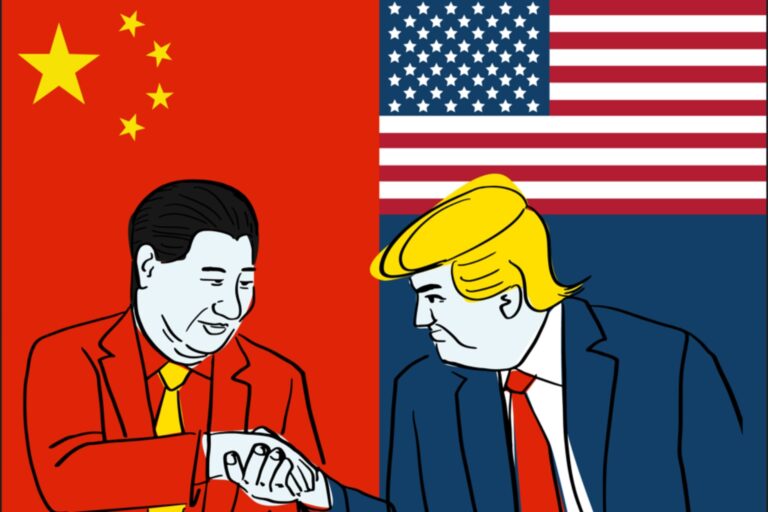
This election cycle, President Obama and Governor Romney are primarily focused on jobs and the economy, taxes and government spending, and social issues such as women’s reproductive health. While foreign policy typically takes a back seat to domestic issues on the stump, the Sino-American relationship has become a major focus of both campaigns.
Unfortunately, most of the campaign rhetoric on China has been inflammatory at best, and inaccurate at worst, particularly from the Republican ticket (though Democrats use incendiary rhetoric as well). Alluding to the tenser aspects of the U.S.-China relationship has become a particularly effective way to galvanize some American voters, not unlike the tactics utilized by the Chinese Communist Party (CCP) to consolidate public support in the People’s Republic of China (PRC).
The Chinese government and people are watching our election closely, and starting next January, either Mitt Romney or Barack Obama will have to navigate the complexities of the US-China relationship every day. The candidates would therefore be wise not to push their rhetoric too far, so as not to further alienate China. Additionally, Romney and Obama should avoid boxing themselves into a China policy-related corner, lest they have to fulfill these promises later as President. Still, it appears that Republican candidate Mitt Romney is not relenting. His comments on China have been increasingly provocative, and have not gone unnoticed in the PRC.
It is not unusual for a presidential candidate to criticize a foreign nation during an election. For example, regarding China, Democratic challenger Bill Clinton famously referred to the “butchers of Beijing” when criticizing President George Bush’s handling of Tiananmen Square. However, the stakes of the Sino-American relationship have never been so high. China is the United States’ third largest export market, we are their largest customers, and the Peoples’ Bank of China is the largest holder of U.S. treasury securities. While the economic relationship is vital to both states, disputes arise frequently and can last for years. Progress on trade and currency issues is often affected by domestic politics in either country. Furthermore, differences over other issues like Taiwan, human rights, military spending, influence in Asia, and cyber-security could be aggravated should the Chinese negatively interpret the increasingly hostile attitudes of the presidential candidates. Romney and Obama would be wise to exercise caution.
Though it is primarily a Republican tactic, both parties are prone to evoking Sino-American disputes to bolster their campaigns. There is some hostility in the Democratic Party towards China, particularly from labor factions who fear the unfair transfer of jobs, technology, and intellectual property to China. Human rights activists, another faction of the Democratic establishment, also find much to object to in the PRC.
Anti-China sentiment primarily comes from the right, however. In spite of China’s now undeniable capitalism, the “big government” style of the PRC doesn’t conform to the Republican ideal, and the Christian right disapproves of the institutionalized atheism in China. Neo-conservatives, taking an ideological interpretation of international relations, view the Chinese ascent in power as directly contributing to America’s decline.
Many in the Republican Party assume that the relationship with China is a directly competitive one—a zero-sum game. This conception perhaps helps to explain some of Mitt Romney’s more inflammatory remarks thus far. He has repeatedly promised to label China as a currency manipulator on “day one” of his presidency, risking a trade war, despite the cautions of some in his party, including former candidate and U.S. Ambassador to China Jon Huntsman. On the campaign trail, Mitt Romney has also stated “the Chinese are smiling all the way to the bank, taking our jobs and taking a lot of our future.” Romney’s insinuation here is that China’s economic improvement is directly worsening our economy—a dangerous message indeed.
Romney’s China protestations extend beyond economic quarrels. In a Republican primary debate last year, Romney exclaimed that “China is stealing our intellectual property—our patents, our designs, our know-how, our brand names.” “They’re hacking into our computers,” Romney said, “stealing information from not only corporate computers, but from government computers.”
Many of Mitt Romney’s concerns on China are valid. Most experts agree that their currency is undervalued, they are stealing our intellectual property and spying on our computers. However, China’s currency has been steadily appreciating over recent years, and it would be preposterous to demand that they accelerate appreciation of the renminbi (RMB) to its actual estimated value. If China did so, unemployment would skyrocket and the government would face an unparalleled economic crisis. Increases in defense and intelligence spending are unsavory to say the least, though not unexpected from a rapidly growing power.
In fact, President Obama shares Mitt Romney’s concerns. His administration has brought trade cases against China at a faster pace than the previous Republican administration. Regarding China’s political system, the President offered an implicit rebuke of its leadership while on a recent visit to Asia. “The freedom to speak your mind and choose your leaders, the ability to access information and worship how you please,” he said, is a universal human desire.
President Obama has demonstrated more diplomatic finesse in his treatment of the PRC than Governor Romney has. “The United States does not seek to contain China,” Obama said on his trip to the country, “nor does a deeper relationship with China mean a weakening of our bilateral alliances. On the contrary, the rise of a strong, prosperous China can be a source of strength for the community of nations.” President Obama seems to understand the Chinese concept of saving face—a tradition that compels Chinese leaders to respond to any perceived international disrespect with authoritative statements or decisive actions. The Chinese leadership would have to respond to empty threats and public criticism from either candidate in order to avoid seeming weak, so the President has attempted to critique the Chinese system without undermining the importance of the alliance.
To a certain extent, the CCP understands that it has become a tradition for the candidates to attack each other by targeting China. According to Da Wei, an American Studies scholar at the China Institute of Contemporary International Relations (CICIR), most Chinese leaders are aware that “the actual policies after taking office won’t be as harsh as the candidates claim during the stump speeches.” Da is optimistic that the candidates’ “rhetoric may even be weakened in the later stage of the campaign when they realize the complexity and importance of the relationship between the two powers.” Regardless of this possibility, Da explains, China must “take some precautions and prepare for any potential battles.” Ni Feng, deputy director of American Studies at the Chinese Academy of Social Sciences, has stated that “more confrontation [with China] will definitely be harmful for both domestic and foreign affairs.” The Chinese are clearly watching our election closely, and may even be making policy changes based on statements from the candidates.
With so much riding on the stability of our relationship with the Chinese, President Obama and Governor Romney must temper their criticism. Vacuous threats and critiques from presidential candidates don’t often translate directly into policy, but there is no telling how the Chinese will interpret them. While there are valid points to be made in attacking China’s foreign and domestic policies, lofty, patriotic-sounding rhetoric that casts China as an enemy is categorically harmful to our own interests.
“I know the Chinese are planning on getting to the Moon,” Mitt Romney told a crowd in Miami on August 13th. “When they do, they will find an American flag that has been there for 43 years.” Unfortunately, the crowd went wild.
Written by Molly Silver
Molly Silver is a second year graduate student at The Johns Hopkins University School of Advanced International Studies (SAIS), where she is studying American Foreign Policy and International Economics. She also works as a Global Public Policy Intern at Facebook, and she assisted on Barack Obama’s presidential campaign over the summer.



